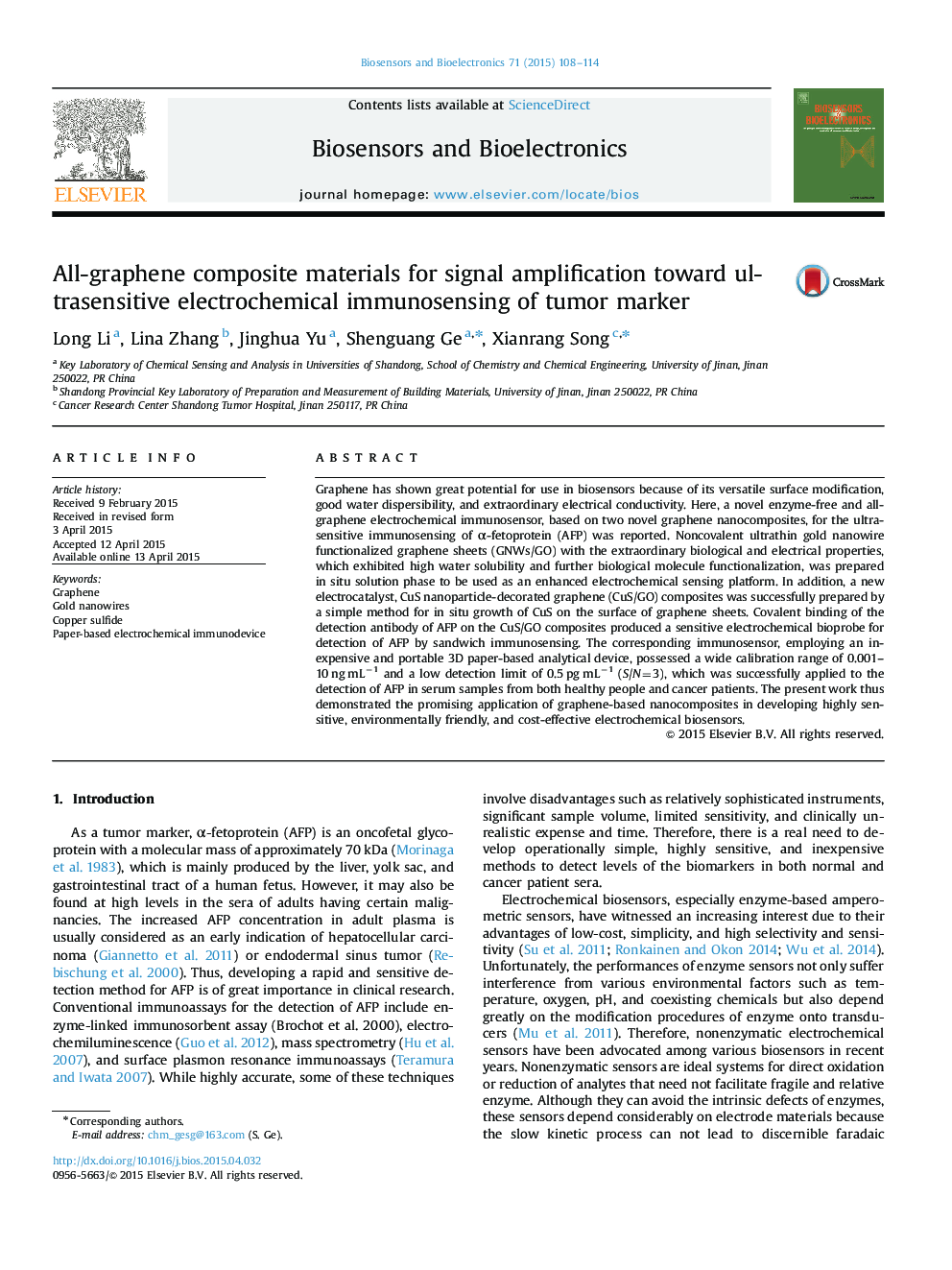| Article ID | Journal | Published Year | Pages | File Type |
|---|---|---|---|---|
| 7231845 | Biosensors and Bioelectronics | 2015 | 7 Pages |
Abstract
Graphene has shown great potential for use in biosensors because of its versatile surface modification, good water dispersibility, and extraordinary electrical conductivity. Here, a novel enzyme-free and all-graphene electrochemical immunosensor, based on two novel graphene nanocomposites, for the ultrasensitive immunosensing of α-fetoprotein (AFP) was reported. Noncovalent ultrathin gold nanowire functionalized graphene sheets (GNWs/GO) with the extraordinary biological and electrical properties, which exhibited high water solubility and further biological molecule functionalization, was prepared in situ solution phase to be used as an enhanced electrochemical sensing platform. In addition, a new electrocatalyst, CuS nanoparticle-decorated graphene (CuS/GO) composites was successfully prepared by a simple method for in situ growth of CuS on the surface of graphene sheets. Covalent binding of the detection antibody of AFP on the CuS/GO composites produced a sensitive electrochemical bioprobe for detection of AFP by sandwich immunosensing. The corresponding immunosensor, employing an inexpensive and portable 3D paper-based analytical device, possessed a wide calibration range of 0.001-10 ng mLâ1 and a low detection limit of 0.5 pg mLâ1 (S/N=3), which was successfully applied to the detection of AFP in serum samples from both healthy people and cancer patients. The present work thus demonstrated the promising application of graphene-based nanocomposites in developing highly sensitive, environmentally friendly, and cost-effective electrochemical biosensors.
Keywords
Related Topics
Physical Sciences and Engineering
Chemistry
Analytical Chemistry
Authors
Long Li, Lina Zhang, Jinghua Yu, Shenguang Ge, Xianrang Song,
